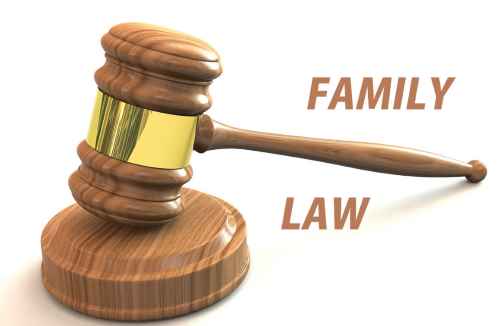Legal Questions? / Legal Answers!

Executor Duties Listed
"You are a special person. The strong
one that is usually counted on. But this
new position you find yourself in now that
your older, might be new to you. Not knowing
what to do first as the Executor, while you
yourself are grieving... is not easy. I hope
these suggestions will help you pass the
whole process. One thing I have noticed is
that no matter the dollar amount involved
is or if real estate is involved, it takes
approx. a year to finish up a will.
1. Take Control of Assets. - As the Executor you are responsible for
protecting and managing the decedent's assets,
such as cash, insurance, securities, jewelry,
art, etc.), you should take control of them
right away. If a Basic Vital Statistic Information Form is with the copy of the will that should
also contain user names and passwords. You
should collect the wallet or pocketbook,
any locked boxes, the cellphone, any collectibles.
etc...and gather up all paperwork you can
find and put it all in a bag to be gone through
later.
You are under no legal obligation to inform
the bank of the decedent's death. If you
have a Debt Card and the pin number you should
go to the bank as soon as circumstances allow,
make no mention of the death, and take out
any cash you may need to start the process.
There is always a chance that a family member
might challenge or question some of your
actions. Especially when it comes to money.
Don't forget to keep accurate records of
all payouts and any incoming monies or checks.
2. Order Copies of the Death Certificate.- To satisfy the verification requirements
of insurance companies and other parties,
ask the funeral home to order from the State
several copies of the decedent's death certificate.
3. Gather All Important Documents. The decedent's financial and other records
must be gathered for the purposes of probating
the estate and preparing the decedent's and
the estate's income tax returns. This includes
all bills that might still carry a balance
and still be owed money from the "Estate".
4. This List Includes Most Documents And Pieces
Of Information That Are Considered Important.
a. Automobile titles
b. Bank statements
c. Business records (if self-employed)
d. Check register (current year)
e. Contracts
f. Life insurance policies and annuities
g. Notes payable and receivable
h. Pension information
i. Employment information
j. Real property deeds
k. Retirement account statements
l. Securities statements and stock certificates
m.Tax return source documents (current year)
n. Tax returns (last three years)
o. Trust agreement
p. Unpaid bills
q. Will
5. Contact Insurance Companies.
You will need to contact each insurance company
that insured the decedent's life or provided
endowment or annuity benefits to the decedent.
Each company will have its own requirements
for payment of death benefits, although all
will require a certified copy of the death
certificate. Some may also require you to
submit the original policy to them before
they will pay the death benefit, while others
will instruct you to destroy the policy after
the death benefit is paid.
6. Contact Other Companies.
Contact all banks, credit unions, brokerage
companies or other companies where the decedent
had accounts, investments or any other financial
interest. Each will have certain requirements
for collecting the funds owned by the decedent.
7. Select an Attorney.
Very simple probates may be handled without
the help of an attorney, but they are rare.
Even in those instances, you should at least
contact the attorney who prepared the decedent's
will, if for no other reason than to review
any documents that the attorney may have
in the decedent's file.
If you decide to hire an attorney to handle
the probate, you are not obligated to hire
the one who prepared the decedent's will.
Virtually any attorney can prepare a simple
will, but it is the experienced probate attorney
who can efficiently perform most of the administrative,
notification and information-gathering functions
described in this article.
Like all other expenses associated with managing
the decedent's affairs, attorney fees and
legal costs are paid from the funds of the
estate.
8. Open Probate.
Despite the many horror stories and myths
often associated with probate, it is generally
not the arduous, complicated ordeal that
many people assume it to be.
Simply described, probate is the legal process
by which claims against the estate are settled,
and the decedent's remaining property is
distributed in accordance with the instructions
contained in his or her will, all under the
supervision of the probate court.
To open the probate, you – acting alone or
through the estate's attorney – submit the
decedent's will to the Superior Court of
the county where the decedent lived, and
file an "Application for Probating of
Will and for Appointment of Personal Representative."
In almost all cases, this can be completed
without the need for a court hearing. After
you are appointed, you can perform official
acts on behalf of the estate.
9. Notify Creditors.
All creditors of the estate - mortgage holders,
credit card companies, anyone to whom the
decedent owed money - should be immediately
notified in writing. Creditors have four
months from the date you notified them to
file claims, and the sooner you inform them
of the death, the sooner the probate can
be closed.
After all creditors have filed their claims,
you pay them using the funds of the estate,
in the following order of priority:
Administrative and legal costs, including
reasonable compensation to you for serving
as PR.
Reasonable funeral expenses.
Debts and taxes with preference under federal
law.
Reasonable and necessary medical and hospital
bills.
Debts and taxes with preference under state
law.
All other claims.
If the total allowed claims exceed the assets
of the estate, creditors are paid a pro rata
share, by category. For example, if there
are sufficient assets to satisfy 100% of
claims in categories 1 through 5 but only
25% of claims in category 6, all creditors
in category 6 will receive 25% of their claims.
In this situation, devisees and heirs may
not receive anything of monetary value.
If you disallow a creditor's claim, the creditor
may sue the estate in Superior Court. The
probate will not be closed until the court
rules on the lawsuit or until you and the
creditor have reached a settlement.
10. File Tax Returns and Pay Taxes.
You are responsible for filing three different
types of tax returns on behalf of the estate:
The decedent's last individual tax return,
covering the period from January 1 to the
date of death. This return is due on April
15 of the year following death.
A fiduciary tax return, for income earned
by the estate between the date of death and
the closing of probate.
An estate tax return, for estates with greater
than $5.49 million (for 2017) in net worth.
You should not take lightly the responsibility
of filing tax returns for the estate. The
government can sue a PR for unpaid taxes
if the PR had the power to pay them.
Distribute Remaining Assets.
After you have paid all valid creditor claims,
taxes, and legal and other administrative
costs, you then distribute the decedent's
assets in accordance with the will. (Undesignated
assets are usually sold.)
Report on the Estate's Status.
You have the duty to provide an annual accounting
of the estate's assets and liabilities until
the estate is closed. This accounting is
provided to all devisees and is not necessarily
filed with the court.
Close the Probate.
After the court has ruled the will valid
and you have resolved all claims, you will
pay all valid claims and costs of administration,
and distribute the estate's assets to the
devisees in accordance with the instructions
in the will. The probate can then be closed,
and your appointment ends.
There are two ways to close the probate:
(1) formally, through which you provide a
final accounting to all devisees and the
court and ask the court to close the probate
and terminate your appointment; and (2) informally,
through which you make a final report to
devisees and file a closing statement with
the court.
If no one objects within 12 months of the
filing with the court (from devisees or creditors),
the probate is closed and you are released
from liability.
If you would like to comment feel free to
e-mail me at
smtracy8@gmail.com
My Final Thought...

"I would ask you to please remember, my knowledge
is from helping others and doing the work
involved to help them with their cases. I
am NOT a Lawyer. I really enjoy exploring
all the angles of any legal situation one
finds themselves in. I also enjoy helping
those that have been wronged or just have
given up. When I help others it fuels my
desire to learn more. I hope this website
helps you to understand how and where to
seek help. How to involve yourself with your
Attorney and help them with your case. Hopefully
you will learn a thing or two that helps
you in your own struggles. To me, some of
the laws seems simple. Almost common sense.
I always start at the end and work my way
back. What is the worst thing that could
happen to you? Spending time in jail? Paying
a fine? Having to report to a Probation Officer?
Go to the end. That is where you start. Once
you know what the end result might be, It
makes it a bit easier to focus on what needs
to be done and what you can live with as
far as a plea agreement"

